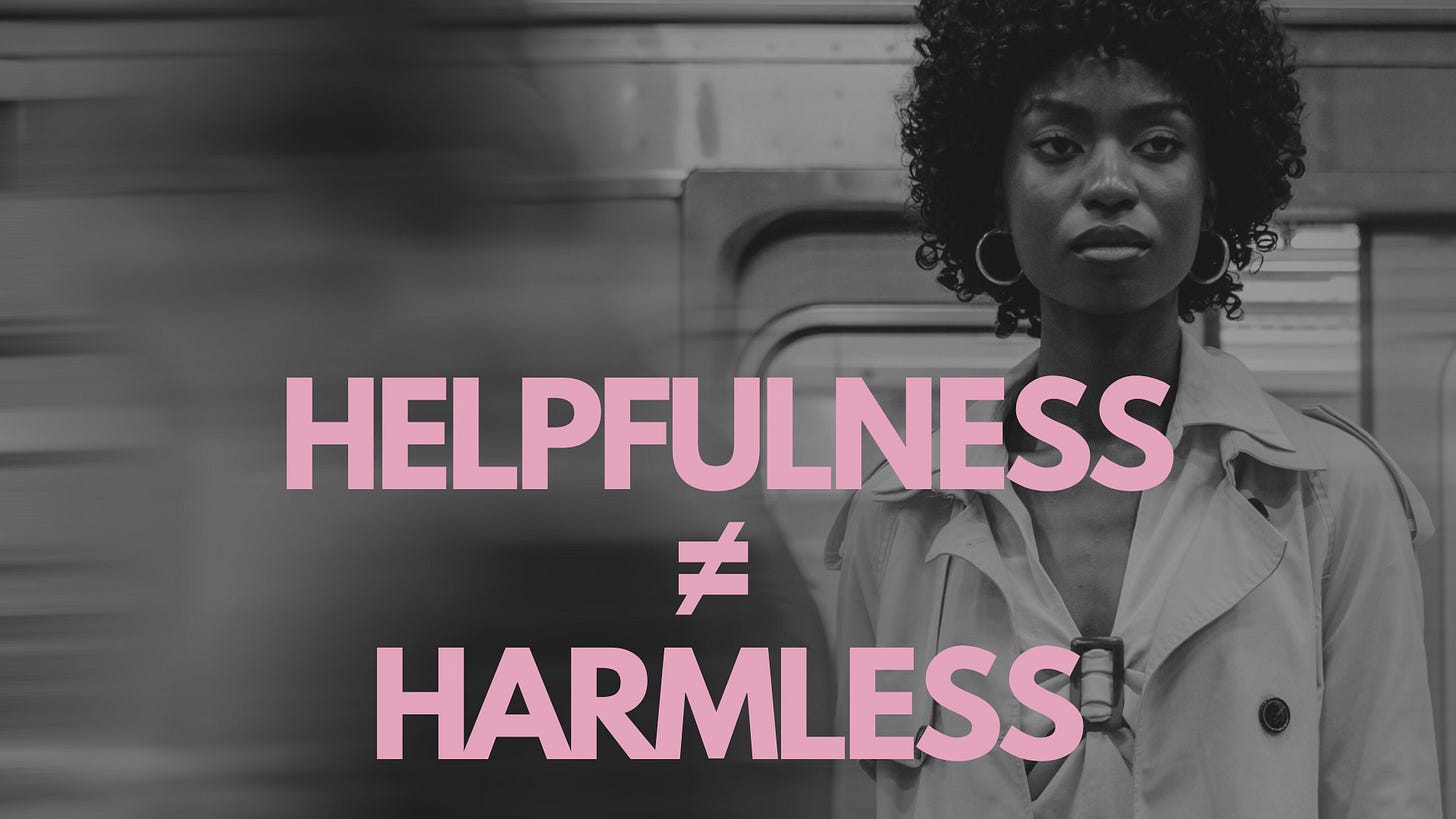One of the most gaslighting phrases out there is: I was just trying to be helpful.
It sounds innocent. It sounds kind. It sounds like something that should be received with gratitude. But it is anything but. That phrase flips harm into virtue. It makes the person who was harmed look ungrateful, angry, or irrational simply for naming what was done.
When people say they are “just being helpful,” what they are really saying is:
They assumed someone needed help without being asked.
They forced their version of help onto someone without consent.
And when the harm was named, they recast themselves as the victim.
That is the cycle. Suddenly it becomes a race to the bottom. Who gets to claim the better victim role: the one who caused the harm or the one who dared to call it out?
Here’s the kicker. When we refuse to accept that version of help, we are told to “be the bigger person.” Translation: swallow the harm, keep quiet, let them center themselves, and carry the weight of false civility.
But there is no high road here. That script only exists to silence people while enabling others to continue their harm.
Silence is not neutral. Silence is weaponized. It allows people to attack livelihoods. It stagnates careers. It enables those with privilege to step on others as their ladder. That is not help. That is harm.
If we really want to talk about being helpful, here is the truth: do not assume. Ask.
Ask: “Do you need help?”
If the answer is yes, ask: “What does help look like to you?”
Because when help is assumed, it is rarely about the person on the receiving end. It is about the one offering it. It is about the need to feel good. It is about the desire to play savior. It is about wanting to tell the story later about how helpful they were. That is not help. That is selfishness dressed up as service.
And if someone says no? Sit with it. No is a complete sentence. It does not require justification.
If no is met with anger, that anger is not about the person who declined. It is about disappointment that the performance of being helpful was interrupted.
If no is met with workarounds, with going behind, around, or through someone anyway, that is not help. That is violation.
We do not talk enough about how “helpfulness” has been weaponized. It happens in workplaces. It happens in communities. It happens in missionary trips where the photos matter more than the people. Helpfulness is too often a mask for privilege, control, and projection.
If help erases expertise, if help forces dependency, if help centers the helper as savior, it is not help. It is harm.
And some are so addicted to being seen as helpful that they will help to the detriment of someone’s health, sanity, finances, livelihood, even their family, just so they can feel good about themselves.
So let’s get this straight. Helpful does not equal harmless.
If no one asked, do not insert.
If harm is named, do not perform victimhood.
If you are told no, respect it.
The most helpful thing any of us can do is stay in our lane. Use privilege to dismantle the systems that create harm, instead of reinforcing them with a smile.




I needed this right now Lu! Thank you so much for writing this and bringing it to the forefront for discussion. It’s been 2 years that I’ve been an empty nester and I’m so used to my girls needing me that I feel abandoned now that they don’t need me. I know that I raised them to be independent but I’m trying to navigate my feelings of not being needed in the same way as before and how my mother role has changed. I appreciate you putting me in check and giving me this new perspective. Thank you!
It is also very harmful in the 'disabled' community - just because we don't function in the same way as other people, does not immediately mean we need help or need to be "fixed". Always ask and actually listen to the answer. Thank you again Lu for speaking truths out into the world 💗💗💗